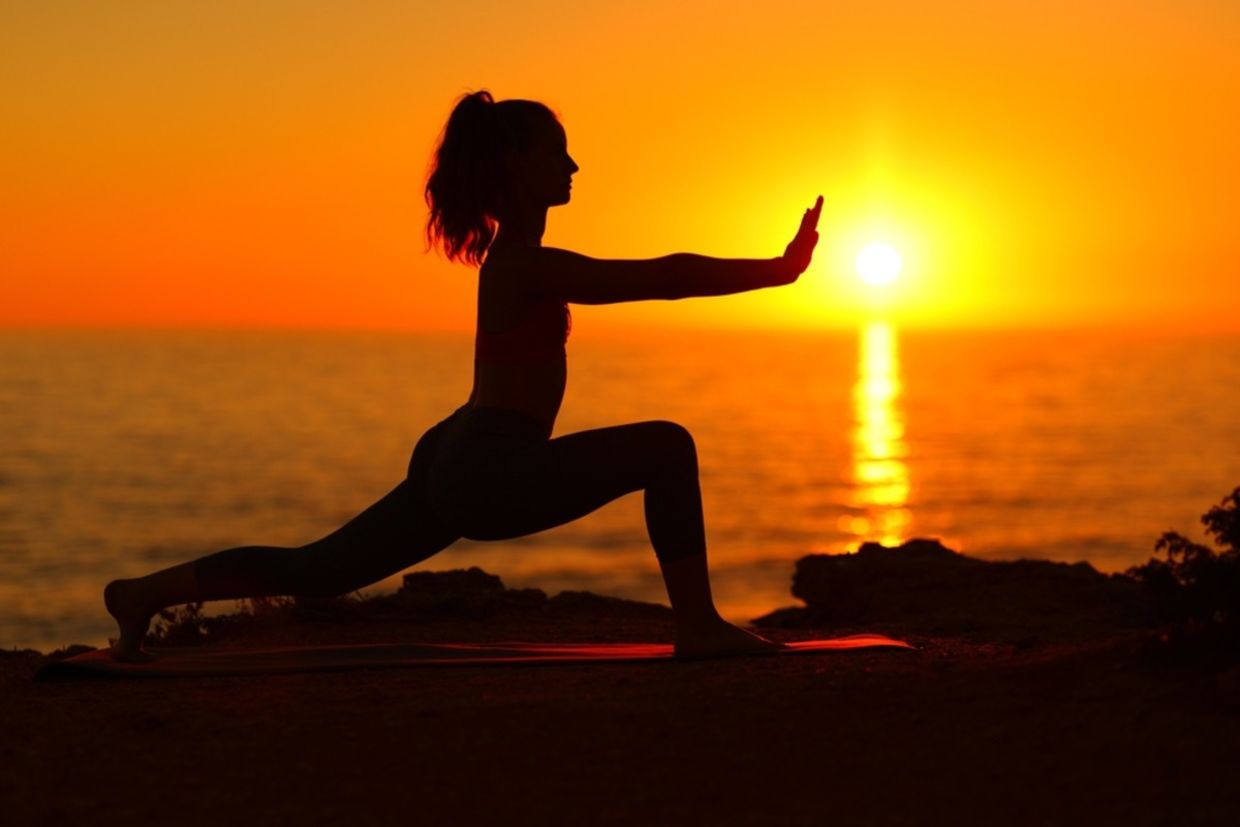
(Antonio Guillem / Shutterstock.com)
Sleep is one of the essential foundations for a healthy life. It restores our bodies, clears our minds, and gives us the energy to take on the day with strength.
The good news? Our daily habits can make a big difference. According to research in the journal BMJ Evidence-Based Medicine, certain types of movement — including yoga, Tai Chi, and walking or jogging, can help ease symptoms of insomnia and allow for better sleep quality.
The Link Between Physical Activity and Rest
The study showed that exercise offered significant benefits. Yoga was shown to increase total sleep time by about two hours, and lower the time spent awake after falling asleep by nearly an hour. So how does exercise prepare us for rest? The answer lies in its impact on our brain, hormones, and mood, according to The Independent.
“Exercise can have a direct impact on our brain activity during sleep, including an increase in slow-wave sleep (the stage of sleep that is restorative) and an increase in our total sleep time,” Dr. Greg Elder, associate director of Northumbria Sleep Research at Northumbria University, tells The Independent. “This means that we have better sleep for longer.”
“Exercise can also affect relevant hormones,” he adds. “For example, exercise can affect our melatonin levels, which is a hormone involved in sleep-wake regulation, as well as cortisol levels, which is a stress hormone.
Types of Exercises to Help You Sleep
If you’ve found yourself tossing and turning lately, there is a natural remedy. These exercises may benefit your sleep hygiene.
Walking
A walk outside where you get some fresh air may be exactly what your body needs. It can make a positive difference when it comes to reducing stress and anxiety that might be keeping you up in the evening hours.
“Walking is suitable for all fitness levels and can be a huge mood booster as it helps to lower cortisol levels, something which can also impact our sleep quality and our energy levels,” says Samuel Quinn, personal training lead at Nuffield Health. “If we’re walking outdoors – and hopefully away from a screen – this can also help reduce anxiety,” he adds.
Yoga
The next time you’re getting ready for bed, you might want to try some gentle stretches and breathing. “Yoga is also great for improving mindfulness and reducing stress, helping our bodies relax and reducing tension,” says Dr. Hana Patel, resident sleep expert at Time4Sleep.
Patel says deep breathing techniques can help to improve sleep and calm the nervous system, allowing us to unwind before sleeping.
Tai Chi
According to the study, Tai Chi could increase total sleep time by 52 minutes, and reduce the time it takes to fall asleep by nearly 25 minutes. The Chinese martial art, which involves combining flowing, low-impact movement with deep and slow breaths, may help lower stress and relax the body, according to Zhi-jun Bu, the study’s first author and a doctoral student in clinical medicine at the Nanjing University of Chinese Medicine, who shares this with CNN.
How You Exercise Makes a Difference
When it comes to exercise and sleep, how you move matters. Dr. Shalini Paruthi, an adjunct professor of internal medicine and pediatrics at St. Louis University School of Medicine, says the timing of your physical activity plays an important role. While a workout earlier in the day can boost your alertness, intense exercise right before bed could make it more difficult to wind down.
It’s also important to tune into your body’s needs. “If a patient wants to try exercising more, I say to start slow, build up that intensity and frequency over time, but listen to your body and observe how it is improving your sleep,” Paruthi says.
So the next time you’re finding it hard to sleep, try these exercises while also paying attention to your body. They might just be the natural reset you need for a deeper and more restful night.
YOU MIGHT ALSO LIKE:
6 Yoga Poses to Practice Before Bed
How to Optimize Your Sleep Cycles
Tai Chi Poses to Balance Every Element







